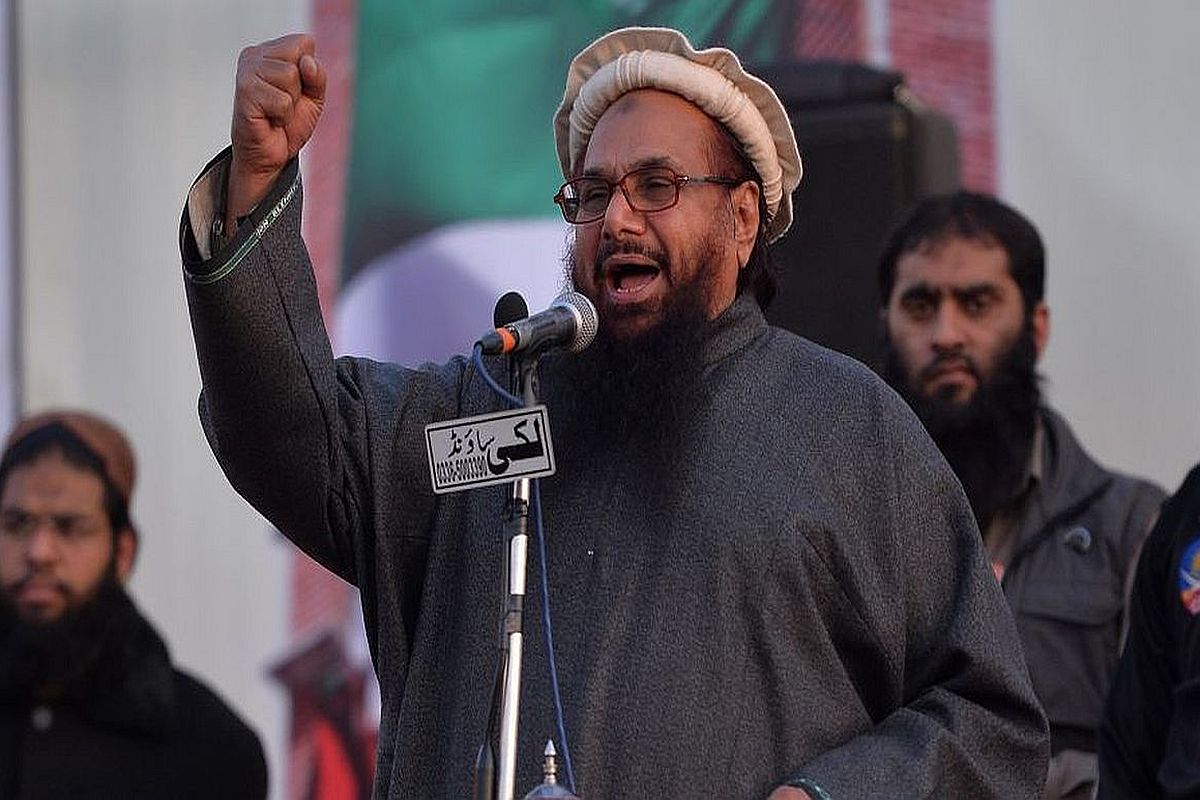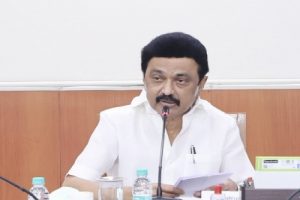Days after Mumbai terror attack mastermind and Jamaat-ud-Dawa (JuD) chief Hafiz Saeed was arrested, the US on Friday expressed doubts over Pakistan’s intentions in arresting the terrorist, saying his previous arrests made no difference either to his activities or that of his outfit Lashkar-e-Taiba.
“We’ve seen this happen in the past. And we have been looking for sustained and concrete steps, not just window dressing,” a senior administration official told reporters Friday, ahead of Pakistan Prime Minister Imran Khan’s visit to the US next week.
Advertisement
Hafiz Saeed, the mastermind of the 2001 Indian Parliament attack and the 2008 Mumbai attack, was arrested on Wednesday by the Counter Terrorism Department (CTD) of Pakistan’s Punjab Province and sent to judicial custody.
According to Pakistani officials, the arrest took place when Saeed, who has several cases pending against him, was travelling to Gujranwala from Lahore to appear before an anti-terrorism court.
“Let me reassure you, we are clear-eyed about the history here. We’re under no illusions about the support that we could see from Pakistan’s military intelligence services to these groups. So we will look for concrete action,” the US official said when asked about the actions that Pakistan has taken against terrorist groups and if the US believes in them.
The official also noted that this was the seventh time that Saeed was arrested since the 2001 attack on India’s Parliament when he was detained right after that attack and was subsequently released.
“Quite frankly, the previous arrest of Hafiz Muhammed Saeed hasn’t made a difference and the LeT has been able to operate. So we’re monitoring the situation,” said the senior administration official.
The US is “concerned” about terrorist groups such as Jaish-e-Mohammed, Lashkar-e-Taiba, and Haqqani network having links with Pakistan intelligence services in the military.
The official further said that it was “no secret”.
The US Department of the Treasury has designated Hafiz Saeed as a Specially Designated Global Terrorist, and the United States, since 2012, has offered a USD 10 million reward for information that brings Hafiz Saeed to justice.
Earlier, India had declined to attach any great importance to the arrest of Hafiz Saeed due to the “symbolic action” taken by Pakistan to show the world.
Speaking on his arrest, Ministry of External Affairs spokesperson Raveesh Kumar said, “We have seen this drama more than 8 times since 2001, question is, whether this will be more than a cosmetic exercise, whetherHafiz Saeed will be tried and sentenced for his terror activities,” adding that Saeed has been released by Pakistan every time on “some grounds or other”.
He further said that such symbolic action by Pakistan will not be enough to impress India.
“Pakistan sometimes takes symbolic action because it has to show the world,” said Kumar and reiterated that only “verifiable, credible and irreversible” action against Saeed will impress India and the rest of the world.
Earlier on Wednesday, special public prosecutor in the 26/11 Mumbai terror attack case, Ujjwal Nikam had said that “Pakistan was fooling the world by claiming that they have arrested him”.
Following global pressure, Pakistan had on July 3 booked Hafiz Saeed and his 12 accomplices for “terrorism financing” in 23 cases.
The CTD said Saeed and his aides used five trusts to “raise funds for terrorism financing”. The people named in the cases include Hafiz Saeed, his brother-in-law Abdul Rehman Makki, Ameer Hamza and Muhammad Yahya Aziz.
The JuD is the front organisation for the Lashkar-e-Taiba or LeT, which is responsible for carrying out the Mumbai terror attack that killed 166 people. It has been declared as a foreign terrorist organisation by the US in June 2014.
Earlier in February, following diplomatic pressure after the Pulwama terror attack, Pakistan had banned Saeed’s terror outfit Jamaat-ud-Dawa (JuD) and its front Falah-e-Insaniat Foundation (FIF).
Hafiz Saeed was listed under UN Security Council Resolution 1267 in December 2008. He was released from house arrest in Pakistan in November 2017.











